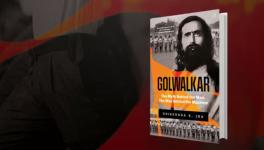‘WhatsApp History’: Based on Academic Rigour or Political Agenda?

Representational Image. Image Courtesy: Flickr
Currently WhatsApp University, as it is popularly called, dominates the scene in shaping popular perceptions. Academic historians who burnt midnight oil to produce history on the ground with a rational scientific approach are labelled in a derogatory way and their massive oeuvre is being bypassed by the dominant political tendency.
The worrying point is that the social perception currently being shaped through this medium is the most important tool in the hands of those who have a retrograde political agenda of Hindutva or Hindu Nationalism.
This point surfaced recently when historian William Dalrymple, whose books have been popular, in a chat with journalists concluded that “…As a result, you’ve got the growth of ‘WhatsApp history’ and ‘WhatsApp University.’ It was the failure of Indian academics to reach out to general audiences.” (Indian Express- Adda, Nov 11, 2024)
This, as per Dalrymple is the source of present misplaced social perceptions, such as Aryans were the original inhabitants of this land, ‘we’ had all the scientific knowledge, like Pushpak Viman (aeroplanes), plastic surgery, genetic engineering and what have you. This perception is also the source of the ‘social common sense’ that Islam and Christianity are ‘foreign’ religions’, that Muslim kings destroyed Hindu temples and wrought immense atrocities against Hindus; including spreading Islam by force. To add to the list, Gandhi was anti-Hindu; India did not get freedom due to the National Movement led by Gandhi and so forth. These misconceptions are ruling the minds of the majority of the people in the society.
This narrative is currently being highlighted by this medium (WhatsApp), but this narration was there in the womb of a political tendency -- Hindu communalism -- represented mainly by e Rashtriya Swayamsevak Sangh or RSS to begin with and later backed up by its progeny.
During the freedom movement, the dominant narrative was articulated by the National Movement, which was inclusive. It understood that India is a ‘Nation in the making’. This was in contrast to the narration of the marginal tendency of Hindu nationalists, who held that Hindus were a nation from time immemorial. Muslim nationalists held that the Muslim Nation began with Mohammad bin Kasim ruling Sindh in the Eighth Century.
The roots of communal historiography lay in British popularised books, such as those by James Mill (History of India), which divided Indian history into Hindu Period, Muslim Period and British Period. On similar lines, there was the multi-volume Elliot and Dawson’s History of India as Told by Her Historians. Both these were based on the notion that Kings were representatives of their religion.
Hindu communal historiography began its march through RSS shakha baudhiks (thought leaders of the morning drill held for its cadre) to begin with and later picked up through various conduits like Saraswati Shishu Mandirs, Ekal Vidyalayas, their unofficial mouth pieces, Organiser, Panchjanya etc.
After veteran Bharatiya Janata Party (BJP) leader Lal Krishna Advani became Information and Broadcasting Minister in the Janata Party government, the infiltration of this narrative began by using the government mechanisms. Already there are signs that RSS volunteers are out to change the total education system and the content of history, social science and other books. A set of nine books authored by Dinanath Batra of Shiksha Bachao Abhiyan Samiti (Save Education Campaign Committee), an RSS affiliate, have already been translated into Gujarati and introduced in 42,000 schools in the state.
In a total takeover of the media by BJP-friendly corporates (Adanis, Ambanis), most of it has been converted and are today sitting on the lap of the ruling BJP. With the BJP strengthening its IT cell, WhatsApp has become the major mechanism of this narrative. The best analysis of this can be seen in the book by journalist Swati Chaturvedi, I am a Troll: Inside the Secret World of the BJP’s Digital Army.
Academic historians wrote for school textbooks and general readers. The most popular among these books are by eminent historian Romila Thapar, on Ancient Indian History. Historian Irfan Habib has done major work in Medieval History and Bipan Chandra’s India’s Struggle for Independence must have gone through multiple reprints and editions.
Many of these academic historians’ books were part of the NCERT (National Council for Educational Research and Training) syllabus in the 1980s. As BJP came to power in 1998, they began ‘saffronisation of education’, which became much stronger after the BJP came with full majority in 2014. Now there is a talk of introducing this pseudo history and mythology into History in a full-fledged way.
Popular perceptions are just partly shaped by academic historians. Today, the political tendencies that are dominating or ruling the country are mainly shaping perceptions among large parts of society. Noam Chomsky, the American linguist involved with human rights activism, propounded the concept of ‘Manufacturing Consent’. His book articulated that governments manufacture a popular understanding, like the plan to invade Vietnam or Iraq or other policies are for the “benefit of society”. Despite the outstanding work of historians, the truth remains under shadow and the needs of the State or the dominating political tendency shapes the popular common sense.
While one appreciates Dalrymple’s concern about the totally irrational understanding propagated by WhatsApp, the real issue is that is that Right-wing politics has ascended and spread its wings in a clever way, to push its political agenda. Their constructed history has nothing to do with rational or academic history.
In India, in particular, an attack has been unleashed against those who have pursued the discipline of history. Veteran journalist Arun Shourie, once a fellow traveller of BJP, wrote a book against some historians of global repute, The Eminent Historians. Even at present, there are many who present a distorted version of history and are unleashing a barrage against those who do not subscribe to Hindu Nationalism.
In a sense WhatsApp is an add-on to the prevailing mechanisms of propaganda of Hindu nationalism. To popularise the work of rational scientific historians, more political and social groups need to come forward to work as a bridge from academic historians to the people at large, to ensure that social common sense and social perceptions are based on values of inclusiveness, scientific temper and Indian Nationalism.
As far as academic historians can volunteer to write school books or more popular tracks, we should be grateful to them. WhatsApp’s success is more due to the rise of communal politics rather than failure of academic historians.
The writer is a human rights activist, who taught at IIT Bombay. The views are personal.
Get the latest reports & analysis with people's perspective on Protests, movements & deep analytical videos, discussions of the current affairs in your Telegram app. Subscribe to NewsClick's Telegram channel & get Real-Time updates on stories, as they get published on our website.
























